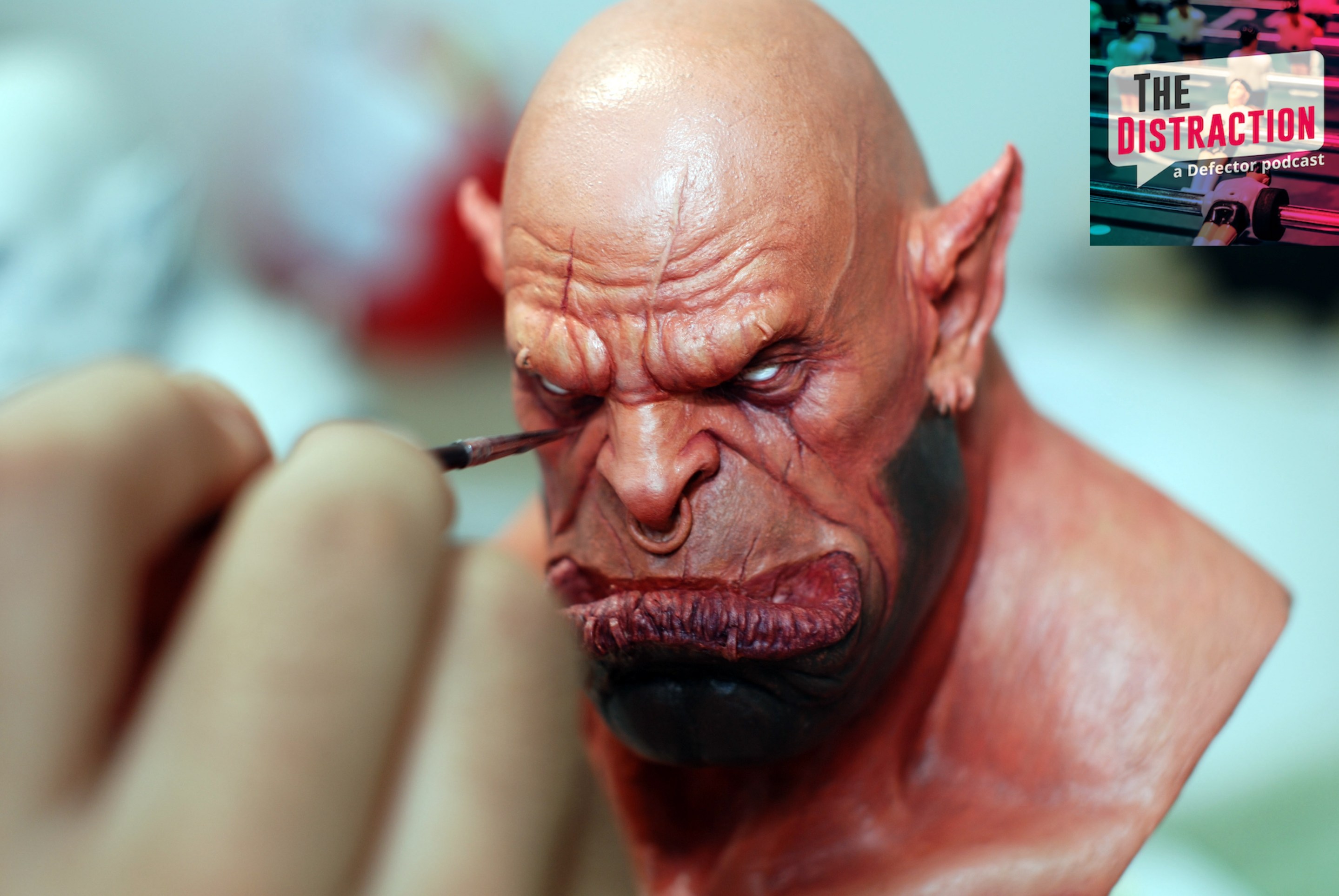On the morning that our former GMG buddy and current bestselling author Jason Schreier joined us to record this week's Distraction, our producer Eric noted that his podcast feed featured three other shows on which Jason was a guest. While Jason's new book—it's called Play Nice: The Rise, Fall, And Future Of Blizzard Entertainment, and comes out next week—will in some sense sell itself due to Schreier's status as a titan in his field and Blizzard's massive following, in another and more literal sense the guy still has to go out there and sell it. All we could do was our part to help, which in this case was talk about the current New York Jets and our varied experiences of the Keith Van Horn Administration with the New Jersey Nets for 12 minutes before turning to Jason's (fascinating) book.
I assume it is clear that I am not bragging when I say that I could talk about the Jets and Nets for an extended period of time, with a guest or simply into a mirror like a version of Travis Bickle that knew and cared about Todd MacCulloch. Jason was a great foil, there, but with Drew out this week I needed help with the gaming stuff. Thankfully, Luis Paez-Pumar was willing to join to provide The Gamer's Perspective—and a story about hanging out with Kerry Kittles—where it was needed. Luis, after all, is the guy that stays up all night playing World Of Warcraft whenever a new iteration drops. That game is arguably Blizzard's signal creation and greatest success, and Jason's book tells the story of its creation in a way that even my non-gaming self enjoyed. But Play Nice, and our conversation about it, was most interesting to me not just when it was laying out the story of the strange, shaggy company that produced that game but for how it put Blizzard's decades-long run into the context of an industry that has come to match the size of the film industry, and which is suffering under some of the same perverse financial incentives.
While Play Nice is, to Jason's dismay, probably filed in the Orc Section of your local bookstore, it is both a business book and a thumbnail history of various cultural moments within gaming. As a mega-dummy on this topic, my goal was mostly to sit back and let Jason explain how Blizzard got so big and so rich. I did not really do this, as there is so much stuff about how the gaming business works that confounds me that I wound up asking both Luis and Jason about a lot of that. The material facts of how the business works—how games are made and shipped, how they are improved, the culture that creates and sustains this strange work, and how companies like Blizzard wring more and more money out of the games they produce—are fascinating to me, and both Jason and Luis had some interesting stuff to say here, up to and including a bold and refreshing Ryan Fitzpatrick/Witcher comparison from Jason.
After the break, we turned towards the broader context, starting with Blizzard's variously unhappy experiences of being owned by variously dysfunctional corporate parents. The way that this works, with businesses getting too big, too fast, and then having to deal with the pressures that come with being owned and managed by contemporary business types, was familiar enough that there were some digressions into how Blizzard's travails have paralleled those of online media. But mostly the main thing was interesting enough that we stuck to this studio and this industry, and this example of how the MBA mindset and the rote ravenousness of Wall Street expectations conspired to make gaming feel and fail like everything else. We also talked about the mess that those incentives have made in other industries, the importance of a workplace culture in which the people involved actually care about what they make and managers respect the work those people do, and the systemic problem of demanding neverending and continuous growth from any business, let alone a creative one. This bit is especially recommended to people who enjoy listening to me get so upset that I sort of forget what question I meant to ask.
This sounds dense, and I guess it was, but Jason is a great talker and knows a lot, and I enjoyed the conversation so much that I was surprised to find that we were bumping up against the time when Jason needed to be released from the Zoom, without having yet asked a Funbag question. Thankfully there was one on hand about what happened to the old, fun variety of facemasks that once but no longer prevailed in the NFL. Whither the weird cage? An episode that began with extraneous sports talk ended with extraneous sports talk. Everything in between was ice-cold Gamer Fuel. There are more unbalanced diets.
If you would like to subscribe to The Distraction, you can do that through Apple Podcasts, wherever else you might get your podcasts, and Spotify if absolutely necessary. Thank you as always for your support.






